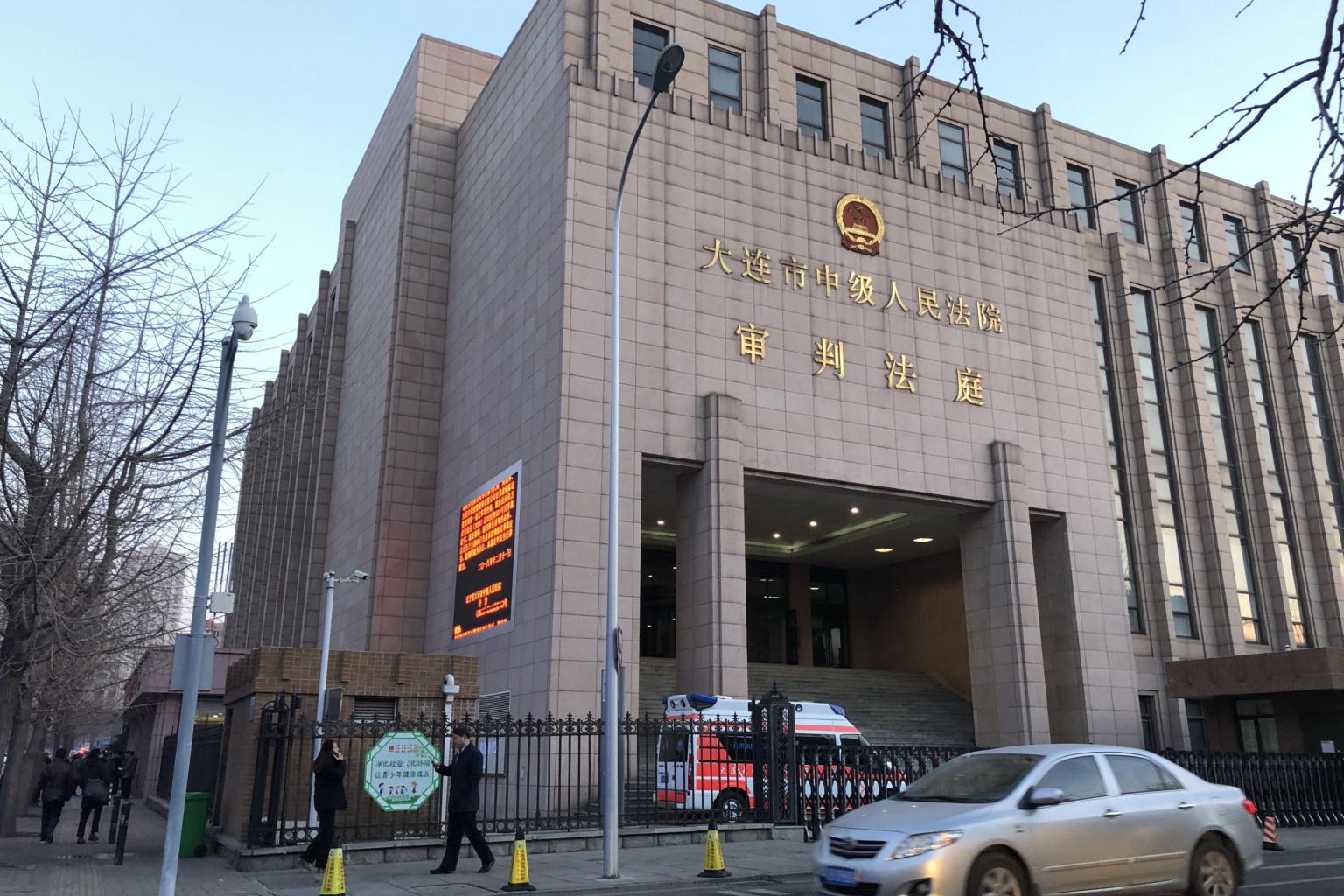China court rejects Canadian Robert Schellenberg’s appeal against death sentence
Sign up now: Get insights on Asia's fast-moving developments

In January 2019, the Dalian Intermediate People’s Court re-tried Schellenberg and imposed the death penalty.
PHOTO: LIANHE ZAOBAO
Follow topic:
BEIJING (REUTERS) - A Chinese court upheld on Tuesday (Aug 10) a Canadian man's death sentence for drug smuggling a day before another court is due to rule on the case of another Canadian accused of spying.
The court proceedings for the two Canadians come as lawyers in Canada representing the detained chief financial officer of telecoms giant Huawei make a final push to convince a court there not to extradite her to the United States, where she faces charges linked to violating sanctions.
The court proceedings for the two Canadians come as lawyers in Canada representing the detained chief financial officer of telecoms giant Huawei make a final push to convince a court there not to extradite her to the United States, where she faces charges linked to violating sanctions.
A Chinese court on Tuesday (Aug 10) rejected Canadian Robert Schellenberg's appeal against a death sentence for drug smuggling, a ruling that was condemned by the Canadian ambassador to China.
The verdict on Schellenberg comes at a time when relations between the two countries remain frozen following Canada's arrest of a Huawei executive in late 2018.
Schellenberg was detained by Chinese authorities in December 2014, charged with drug smuggling in January 2015, and sentenced to 15 years of imprisonment on Nov 28, 2018.
A few days later on Dec 1, Canada detained Meng Wanzhou, chief financial officer of Chinese telecommunications giant Huawei Technologies, in Vancouver on a US extradition warrant. China warned of unspecified consequences unless Meng was released.
Before the month was out, a Chinese court ordered a retrial of Schellenberg's case on Dec 29 when he appealed against the 15-year sentence.
Meng, who has said she is innocent, has been fighting her extradition from under house arrest in Vancouver.
In January 2019, the Dalian Intermediate People's Court in China's Liaoning province re-tried Schellenberg and imposed the death penalty.
The High Court in the northeast province of Liaoning heard Schellenberg's appeal against the death sentence in May last year and confirmed the verdict on Tuesday.
Imposing a harsher sentence following an appeal is contrary to the spirit of Chinese procedural law, Beijing lawyers told Reuters.
Speaking to reporters by telephone after attending the hearing, Canada's ambassador to China, Dominic Barton, condemned the decision and called for China to grant clemency.
"It is not a coincidence that these are happening right now, while the case is going on in Vancouver," Mr Barton said, referring to Schellenberg's case and that of another Canadian, Michael Spavor.
China has rejected the suggestion the cases of the Canadians in China are linked to Meng's case in Canada though China has warned of unspecified consequences unless Meng was released.
The Chinese foreign ministry did not immediately respond to a request for comment.
Businessman Spavor was detained in China days Meng's arrest in Vancouver. He charged with espionage in June last year and went to trial in March.
Barton said a court in the northeastern city of Dandong, on a river bordering North Korea, is expected to announce a verdict on Spavor on Wednesday.
Another Canadian, former diplomat Michael Kovrig, was also arrested in China days after Meng's arrest and charged with espionage. His trial was conducted in March. His embassy had no news about when he would be sentenced.
Chinese courts have a conviction rate of more than 99 per cent.
Some observers have said the likely convictions of both Spavor and Kovrig could ultimately facilitate an agreement in which they are released and sent back to Canada.
"It is not a coincidence that these are happening right now, while the case is going on in Vancouver," Mr Barton said, referring to Schellenberg's case and that of another Canadian, Michael Spavor.
China has rejected the suggestion the cases of the Canadians in China are linked to Meng's case in Canada though China has warned of unspecified consequences unless Meng was released.
The Chinese foreign ministry did not immediately respond to a request for comment.
Businessman Spavor was detained in China days Meng's arrest in Vancouver. He charged with espionage in June last year and went to trial in March.
Barton said a court in the northeastern city of Dandong, on a river bordering North Korea, is expected to announce a verdict on Spavor on Wednesday.
Another Canadian, former diplomat Michael Kovrig, was also arrested in China days after Meng's arrest and charged with espionage. His trial was conducted in March. His embassy had no news about when he would be sentenced.
Chinese courts have a conviction rate of more than 99 per cent.
Some observers have said the likely convictions of both Spavor and Kovrig could ultimately facilitate an agreement in which they are released and sent back to Canada.

